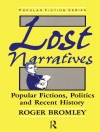This collection of articles studies the development of crime fiction in Denmark, Finland, Iceland, Norway and Sweden since the 1960s, offering the first English-language study of this widely read and influential form. Since the first Martin-Beck novel of Maj Sjowall and Per Wahloo appeared in 1965, the socially-critical crime novel has figured prominently in Scandinavian culture, and found hundreds of millions of readers outside Scandinavia. But is there truly a Scandinavian crime novel tradition? Scandinavian Crime Fiction identifies distinct features and changes in the Scandinavian crime tradition through analysis of some of its most well-known writers: Henning Mankell, Stieg Larsson, Anne Holt, Liza Marklund, Leena Lehtolainen, and Arnaldur Indrioason, among others. Focusing on Scandinavian crime fiction’s snowballing prominence since the 1990s, articles zoom in on the transformation of the genre’s social criticism, study the significance of cultural and geographical place in the tradition, and analyze the cultural politics of crime fiction, including struggles over gender equity, sexuality, ethnicity, history, and the fate of the welfare state. Scandinavian Crime Fiction maps out the contribution of Scandinavian crime writers to contemporary European culture and society, making the volume valuable to scholars and the interested public.
Spis treści
Introduction Andrew Nestingen and Paula Arvas I. Genre revision 1. Swedish cops in the new millennium: The transformation of the police procedural Kerstin Bergman, Lund University, Sweden. 2. High crime in contemporary Scandinavian literature: Peter Hoeg’s Miss Smilla’s Feeling for Snow Magnus Persson, Malmo University, Sweden 3. Nordic crime fiction and the opacity of social life Andrew Nestingen II. Crime and affect 4. The place of pessimism in Henning Mankell’s 'Kurt Wallander’ novels Shane Mc Corristine, University College Dublin 5. Not the usual suspects: Hakan Nesser and collateral guilt in the north Sylvia Soderlind, Queen’s University in Kingston, Canada III. Contested identities 6. Contesting the past: Rewriting history in modern Scandinavian crime fiction Karsten Wind Meyhoff, University of Copenhagen, Denmark 7. National identity in contemporary Icelandic crime fiction Katrin Jakobsdottir 8. The final frontier: Finland and Russia in Nordic crime fiction since the 2000s Paula Arvas IV. Intermediality 9. Dirty Harry in the Swedish welfare state Michael Tapper, Lund University, Sweden 10. Making Swedish crime queens: Maria Lang, Liza Marklund and Camilla Lackberg Sara Karrholm 11. Gender at the margins in contemporary Nordic crime fiction on TV and in print Karen Klitgaard Povlsen, University of Aarhus












